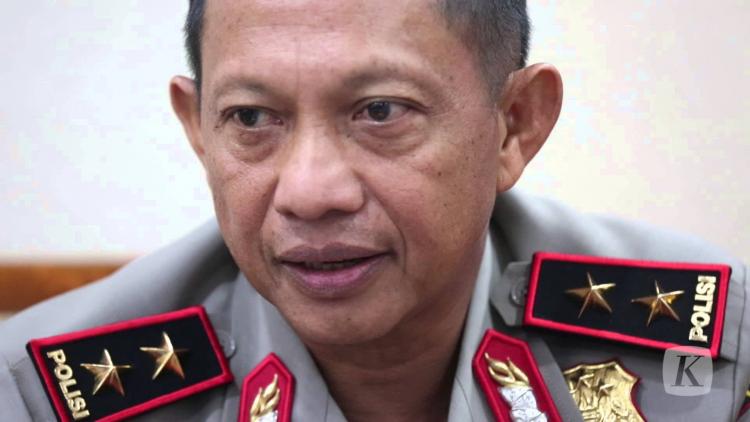The Polemic on the Anti-Corruption Special Detachment

The discourse to create the Anti-Corruption Special Detachment by the Indonesian National Police (Polri) has caused a polemic. Many parties, from anti-corruption activists, civil society organizations, academics to Vice-President Jusuf Kalla, have expressed their opposition.
The polemic began in the working meeting between Commission III of the Parliament with the Polri on 23 May 2017. The members of the Commission suggested that the Chief of the Indonesian National Police create a special detachment to handle the crime of corruption, called the Densus Antikorupsi. The intent was to speed up the process of handling of corruption cases, which is often drawn out due to the sending back and forth of files between the Polri and the Prosecutor’s Office.
Furthermore, the performance of the Polri’s Criminal Detective Section has not been optimal in handling corruption cases, due to lack of funds and rigidity of bureaucracy, especially if compared to the Corruption Eradication Commission (KPK), whose budgeting and bureaucratic arrangement are much more progressive.
It was planned that the Anti-Corruption Special Detachment would begin operating in early 2018. It was to have the same authority as the KPK, including prevention, inquiry, investigation, up to prosecution. Based on the statements of a number of Members of the Parliament, the Anti-Corruption Special Detachment would take over the duties of the KPK. According to Wenny Warouw of the Gerindra fraction, KPK is an ad hoc institution. If the Polri is capable of taking over its duties, KPK should no longer exist. Thus, the structure in the Anti-Corruption Special Detachment would mirror that of the KPK, consisting of representatives of the Police, Prosecutor’s Office and the Supreme Audit Board (BPK) with a total personnel of 3,560.
The planned creation of the Anti-Corruption Special Detachment met with rejection from many parties, who considered that such an institution would be problematic, from both technical and substantial aspects. Vice President Jusuf Kalla stated that an Anti-Corruption Special Detachment was not yet necessary, due to the remaining issue of corruption within the police itself. Besides, the Detachment was suspected to instil fear among regional officials who wanted to create policies, resulting in negative impacts to the government programs. Attorney General M. Prasetyo questioned the legal basis for the creation of the Anti-Corruption Special Detachment. Referring to the Criminal Procedural Code, the authority of prosecution lies in the Prosecutor’s Office.
Indonesia Corruption Watchhas five statements on the discourse of the formation of the Anti-Corruption Special Detachment. First, there has been no publicly accessible academic inquiry on this issue. Such a study would be necessary as the basis for public discussion to objectively evaluate the urgency to create such an Anti-Corruption Special Detachment. Second, there is no legal basis for the creation of the Anti-Corruption Special Detachment. The weak legal basis is feared to repeat the history of the Timtas Tipikor (Team for the Eradication of the Crime of Corruption) and TGTPK (Combined Team for the Eradication of the Crime of Corruption), which ended in dissolution of the teams.
Third, is the scope of work of the Anti-Corruption Special Detachment. The lack of clear argumentation on the preventive function of the Detachment will be a danger if it is interpreted as informing the perpetrators of corruption to prevent their action, such as stated by the Attorney General during a hearing with the Commission III of the Parliament, in response to the raid in the Pamekasan Prosecutor’s Office by the KPK.
Fourth, the organizational culture under the control of the executive and legislative. The police will never be an independent body, as the authority to approve the candidates for the Chief of Police lies in the Parliament and the President, resulting in the possibility of intervention from various political interests.
Lastly, fifth, the momentum for the creation of the Anti-Corruption Special Detachment is coincidental with the Parliament’s attempt to weaken the KPK through the invocation of the Right of Inquiry. This discourse must be seen in the same frame, in which there is the possibility of Senayan politicians making use of this momentum to ‘ride’ the fledgling Anti-Corruption Special Detachment, which has the potential of the dissolution of KPK.
Thus, the rejection from various parties need to be heeded. It is important for the government and the Polri to evaluate the causes of Polri’s failure in eradicating corruption. If the need to create the Anti-Corruption Special Detachment is indeed pressing, its authority needs to be limited to address corruption within the Police itself, as included in the International Best Practices in various countries, such as Australia. In this country, to eradicate internal corruption within the Australian Police, a special team has been formed, with the orientation for internal improvement of the Police. (Wana/Ade)










